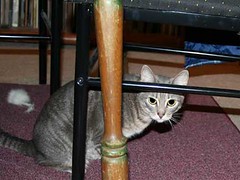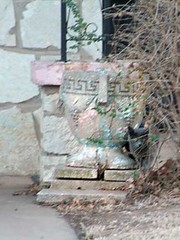Late last week, on NPR's
All Things Considered, I heard an interview with a woman whose father had died in the Sago mine explosion. She was commenting on the early report, sadly mistaken, that 12 men had survived the collapse. She said she would not have closure until she learned who exactly was responsible for that false report, and why it took three hours to correct it.
I have no doubt that I would want the answers to those same questions if I were in her place. However, I doubt the answers would truly give me "closure".
To tell you the truth, I don't know what "closure" is supposed to mean. If it means something like "case closed" — in other words, that the grief doesn't hurt anymore — I don't believe it exists.
My experience with major losses — like the death of a beloved family member — suggests that grief is never completely over. It's never neatly resolved, like a case on CSI.
A friend once described grief as an emotion that comes on in waves. My experience suggests that that is an apt metaphor. For example, I went around in a fugue state the first few months after Padre died. I almost felt like I was underwater. People would say the traditionally comforting things, such as "Sorry for your loss"; I would see their lips move, but not really understand their words.
After those first few months, I slowly returned to my accustomed experience of reality. It didn't happen all at once; it was more as if I were walking very slowly out of deep water.
And even once I felt like I was "back to normal", it wasn't over. Every so often, I would be hit with a wave of grief — missing him, wishing his life story could have had a different ending. These waves would sometimes be related to "anniversary" events, such as his birthday or some holiday. Other times, they'd just come with no obvious connection to an event.
Over time, those waves of grief came further and further apart, like diminishing ripples. And each wave would have less of an impact than the previous one. But the waves still come.
Of course, I had questions when Padre died. Most of them were unanswerable. Over time, I have worked out some answers that work for me. But I don't suppose even having answers to all those questions, or believing that my answers are 100% correct, would completely calm what are now ripples of grief.
To tell the truth, I'm not sure I want those ripples to be calmed.
Every time I miss him, I remember the love we shared. I suspect these are intricately connected, such that if I lost one, I would lose the other.
So, I hope the families in Sago, West Virginia will one day forget the righteous anger they feel about the miscommunications that occurred that final day of the tragedy. I hope they receive counseling and compensation for their loss. I hope that one day the pain will no longer be overwhelming.
And I hope they never stop missing their fathers and husbands, never forget the love and support they shared with those men.







